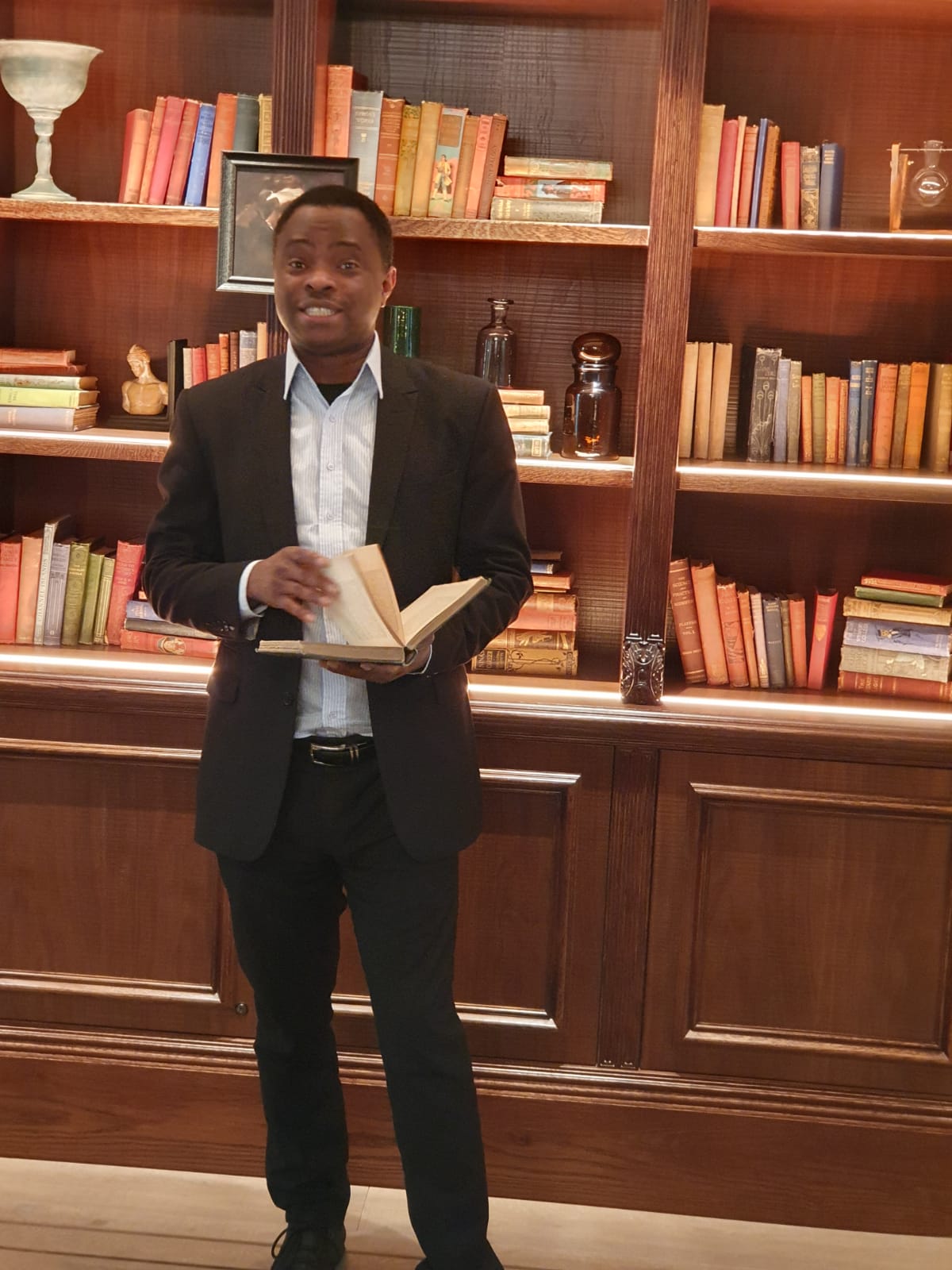A lot of people have overtime harboured an erroneous conception that the new 5G technology is harmful, and of course capable of transmitting the dreaded Coronavirus disease.
Well, let me shock you: As one of Nigeria’s leading technology entrepreneurs, it’s imperative I tell that it is actually possible to get the coronavirus from a 5G mast.
How? If you lick it.
And even then, you will only get sick if those masts have very recently been licked by someone who has COVID-19.
So unless you, your friends and your family regularly get together to lick telephone poles, you cannot get the coronavirus from a 5G mast.
But across Nigeria this myth is taking root. And social media is where that root finds the most fertile soil.
From Ogun to Borno, in Whatsapp groups, and Twitter posts and Facebook pages, people are spreading claims that twenty-first century telecommunications are to blame for the deadly worldwide outbreak.
These claims are as dangerous as they are ridiculous.
The myths have been discredited in detail by the Nigerian Communications Commission, who have written:
“Firstly, there is no correlation between 5G Technology and COVID-19.
“Secondly, there is no deployment of 5G in Nigeria at the moment. The NCC back in November 2019 approved trial test for 5G for a period of three (3) months, and the trial has been concluded and installation decommissioned.”
To put it another way: 5G doesn’t cause the cornonavirus, and even if it did, we wouldn’t have to worry in Nigeria as our communications infrastructure isn’t good enough!
That trial, by the way, was limited to three offices in Lagos, Abuja and Calabar and finished months ago.
Still don’t believe me? Well answer this. Iran is one of the countries hit hardest by COVID-19, with 120 times more deaths than Nigeria. If that pastor on YouTube or the meme your Auntie sent you is right, and 5G does give you the cornonavirus, how has that happened to a country which has never had 5G!
Improved telecommunications infrastructure is in fact the cure for the epidemics like the coronavirus, not the cause.
5G will allow Nigeria to fast-track the mass adoption of technologies that is key to our economic future, productivity and quality of life – from artificial intelligence and self-driving cars driving around smart cities to virtual reality, remote surgery and internet-connected domestic appliances.
As President Buhari stated in his televised address to the nation the lockdown is only being lifted “with aggressive reinforcement of testing and contact tracing measures while allowing the restoration of some economic and business activities in certain sectors”.
Contact tracing is one of the most effective ways of preventing the spread of infections. It means rapidly finding everyone who has come close to someone who tests positive for an infectious disease like COVID-19 straightaway.
But how can you identify every single person someone has come within two metres of the last two weeks? It’s not possible.
But it is possible if their phone can record being close to your phone. And 5G technology makes that job a lot easier.
You can also send them an alert or message encouraging them to self-isolate – within seconds.
5G won’t save Nigeria from the COVID-19. But the contact tracing it makes possible could save us from the next outbreak, whatever outbreak that is.
In the meantime, our elected leaders need to take responsibility for standing up to social media myths.
Rate Your Leader, a free app I created, allows voters to identify and connect directly with their elected representatives at the touch of a button, direct from their phone.
At a time when myths about COVID-19 are spreading on social media almost as quickly as the virus itself, and when face to face contact is impossible, this connection is even more vital.
People might tell you that they don’t trust their local politicians, but in reality they are high credibility sources with a unique power and reach to promote crucial health messages through their networks.
Platforms like Rate Your Leader have a vital role to play in allowing accurate information to be communicated unfiltered from reliable sources to the people who might otherwise be panicked into listening to less reputable advice and taking steps which might actually be dangerous or damaging to their health.
Blaming 5G is not the only epidemic idiocy out there online. At Rate Your Leader we have seen bizarre stories circulating on social media – like how COVID-19 can be cured with sesame oil or shaving.
Local leaders must keep their people safe by rapidly rebutting these harmful fantasies.
Nigeria is not alone in these problems. The United Kingdom saw at least 20 cases of 5G masts being attacked in one weekend alone – including one mast serving a hospital treating people with the Corononavirus.
Nigeria’s telecommunications are behind the times as it is. We cannot cope if people misguidedly destroy the assets we do have, because not enough effort has been made to counter the dangerous misinformation they have been given.

 News6 years ago
News6 years ago
 Featured6 years ago
Featured6 years ago
 Boss Picks6 years ago
Boss Picks6 years ago
 Headline6 years ago
Headline6 years ago
 Headline6 years ago
Headline6 years ago
 Headline5 years ago
Headline5 years ago
 Headline6 years ago
Headline6 years ago
 Headline6 years ago
Headline6 years ago














